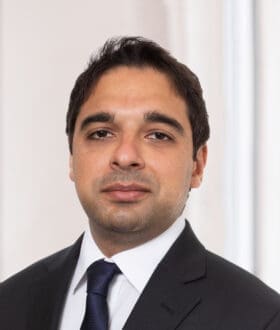Global Vantage: Infrastructure Case Study: Tema-Aflao Road Project
June 2021BHM Construction International (UK) Limited, a longstanding client of Beale & Co, will shortly start construction on Phase 1 of the Tema-Aflao Road project, a major highway project in Ghana. We have been delighted to support BHM over the past few years in bringing the project to fruition. This article looks at the project and the work carried out by BHM and by us in negotiating and structuring it.
The Project
The project is vital for Ghana and for West Africa as a whole: it relates to a key part of the strategically important Trans-West African Highway that links the West African coastal states, enabling movement of people and goods, boosting regional integration and economic development, and knitting the region’s economies together.
BHM presented the Ghanaian government with a complete solution for procuring and constructing the project. BHM arranged the finance for the project, using a combination of public- and private-sector lenders and export finance (through UK Export Finance). It procured the fulfilment of all relevant preconditions to the project, such as security and environmental and social impact assessments. It will now carry out the entirety of the design and construction of the project, together with the team of specialist consultants and subcontractors that it has assembled.
The Contract
The contract for the design and construction of the project is a 1999 FIDIC Yellow Book form, with project-specific amendments to address particular concerns of BHM and its employer, the Ghanaian Ministry of Roads and Highways. Many of the particular areas of disagreement that arose in negotiations will be familiar to anyone with experience of projects of this nature – examples include contract administration, payment, and movement and compensation of affected persons.
BHM worked in close collaboration with the Ministry, sought to understand its key concerns, and together with us proposed and ultimately agreed practical and workable contractual arrangements for the project that would comply with the Ministry’s requirements, meet the funders’ conditions, and satisfy BHM’s key commercial drivers.
The final phase of contract negotiations – reaching agreement on the most intractable issues and the longest-standing areas of disagreement – is always more productive in person. On this project, though, in-person meetings proved impossible: final contract negotiations took place at a time when COVID travel restrictions in the UK, in the countries where BHM and its representatives were located, and in Ghana all meant that face-to-face negotiations were impossible.
It is a testament to BHM’s commitment to the project, as well as that of the Ghanaian government and the funders, that agreement was reached on the terms of the contract and the funding arrangements, those terms put to and approved by Ghana’s parliament, and all necessary documents finalised and executed on a completely remote basis, using a combination of videoconferencing technology, old-fashioned telephone calls, and in-country representatives.
Funding and Security
One of the key features of the package put by BHM to the Ghanaian government was that it was a one-stop shop: BHM would arrange all of the funding needed for the project and provide all security required, as well as actually carrying out the design and construction of the project.
The funding and security arrangement that BHM proposed comprised a combination of public-sector borrowing, private-sector finance from local, regional and foreign banks, and export finance (through UK Export Finance).
In relation to the public-sector and export finance elements in particular, the funders as expected imposed stringent conditions concerning the impact of the project – both the construction activities and the as-completed project – including on the environment and on all affected persons. Indeed, a satisfactory environmental and social impact assessment was a precondition to signing or drawdown of the loan arrangements.
Accordingly, BHM worked with specialist external consultants to see that the project received a ‘clean bill of health’, on terms acceptable to the funders, and we ensured that the funders were entitled to rely on and were happy with the reports from those consultants.
In relation to the private-sector finance and security elements, BHM had to cater for the fact that each institution in the financing consortium, and each bank providing security, had its own set of requirements. Every one of these requirements had to be met in order for the project to progress through the funders’ risk committees and in order for the loan and security arrangements to be signed, bonds issued, and funds drawn down. Accordingly, BHM worked with us and with the funders to procure that all of these requirements could be, and ultimately were, met.
Only now that all of these requirements are satisfied, all funding agreements signed, all required security in place, and the conditions precedent to drawdown of all loans satisfied, can BHM start work on the project.
Project Execution
To carry out a project so far from home, particularly at a time when travel is still heavily restricted, BHM will be reliant on its in-country personnel. Accordingly, it has built up a specialist team of consultants and subcontractors who will ensure that the works are designed, executed and managed so that they are completed on time, on budget and to the required specification.
Some of those personnel are BHM’s employees or consultants. Others are engaged on a project-specific basis. We have ensured that the terms of all personnel’s engagements are appropriate for the project, including by flowing down into their contracts and appointments all relevant terms from the ‘head’ construction contract.
It is always exciting when ground is broken on a new project. No doubt as works commence and progress on this project there will be challenges, both foreseen and novel. However, with an experienced team in charge, and with the benefit of a robust set of contractual frameworks and protections, BHM is well-placed to carry out and complete the project successfully, for the benefit of all stakeholders – particularly the people of West Africa.
Download PDF








